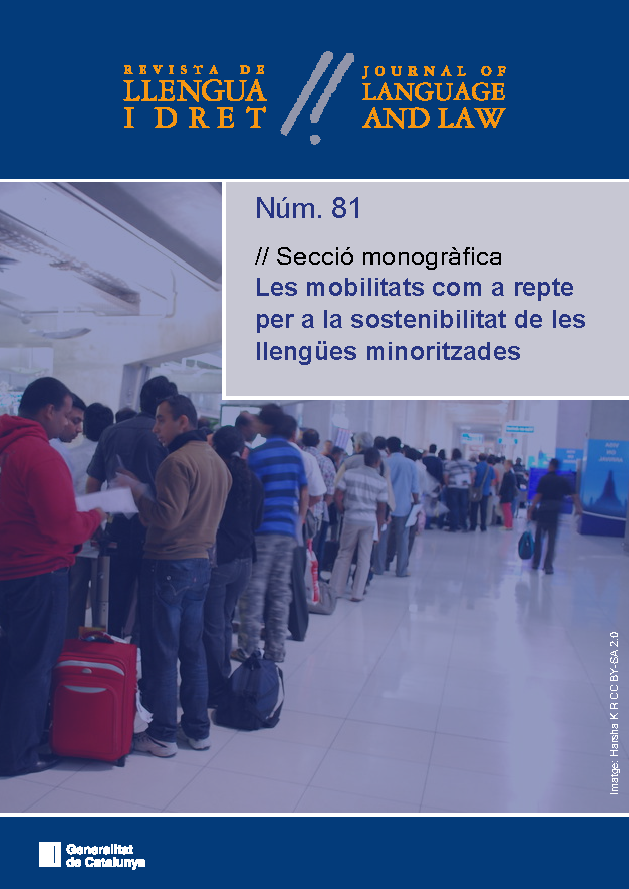International non-Catalan speakers in Catalonia: mobility, inequalities and the Catalan language (CA-EN)
Article Sidebar

Main Article Content
This article analyses how the trajectory of economic, social and symbolic capitalisation of various profiles of foreign-born non-Catalan speakers resident in Catalonia defines their positioning in relation to the sociolinguistic dynamics of Catalonia and, especially, as regards the Catalan language. Using a qualitative methodology, I study the role of Catalan in the processes of capitalisation and decapitalisation of these speakers, in addition to the limitations that not speaking this language entails for social mobility in accordance with the initial degree of capitalisation of each individual and their life project. The research demonstrates that the initial socioeconomic inequalities between different profiles of non-Catalan speakers determines their degree of access to Catalan, and the need to acquire this language resource in order to access other material or symbolic resources. Furthermore, based on the Catalan case, I analyse the processes of loss of value of linguistic capital in dominant languages when they come into competition with minoritised local languages immersed in revitalisation processes.
Article Details
(c) Revista de Llengua i Dret, 2024